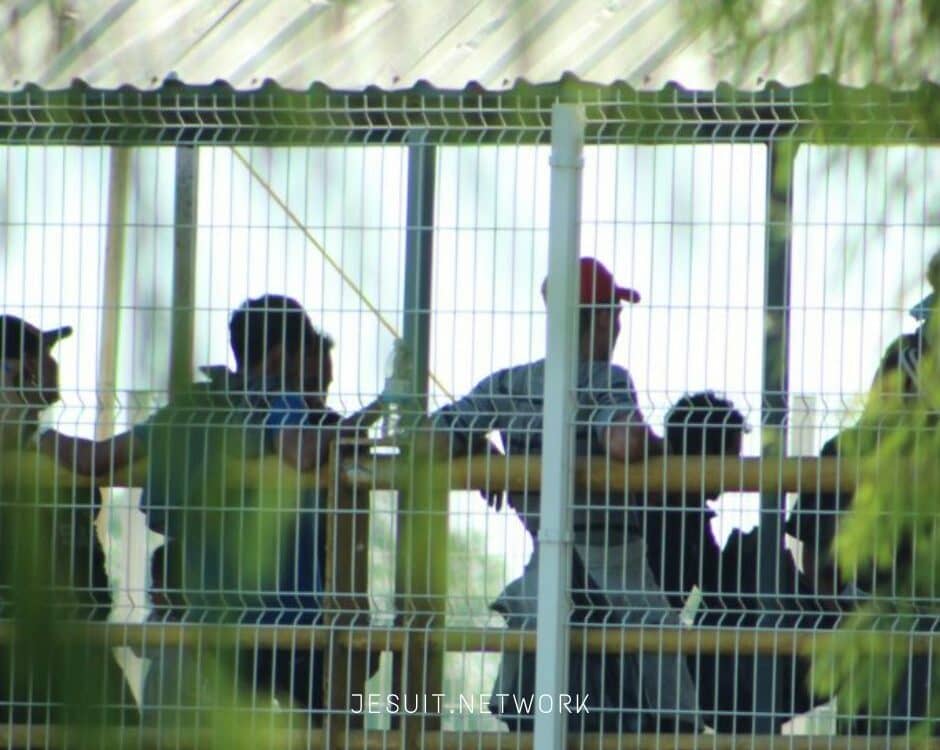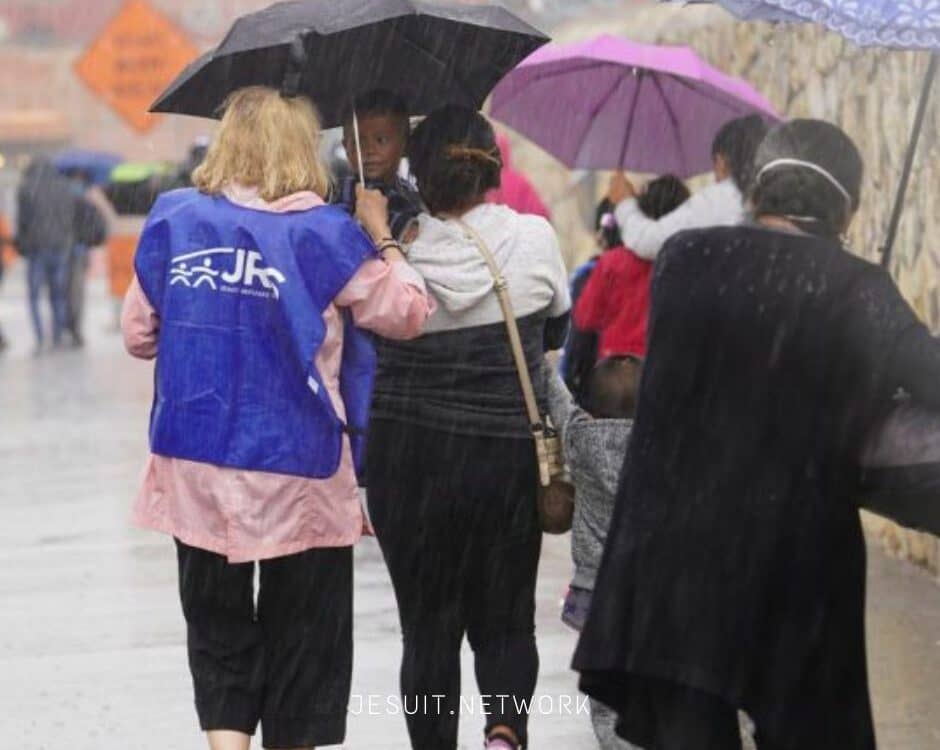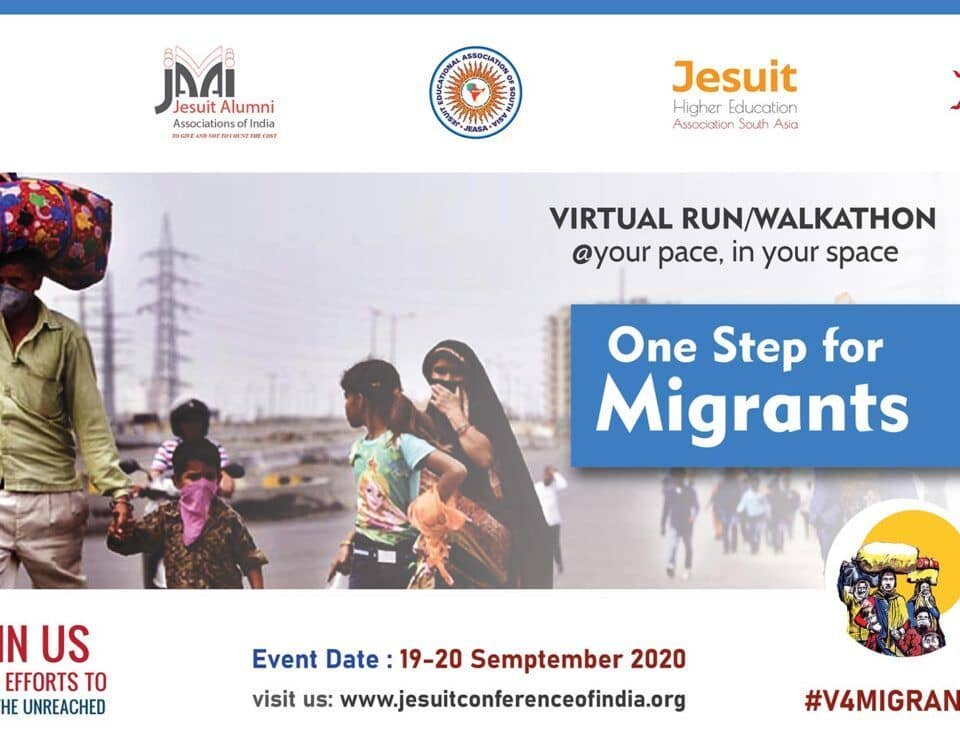This website uses cookies so that we can provide you with the best user experience possible. Cookie information is stored in your browser and performs functions such as recognising you when you return to our website and helping our team to understand which sections of the website you find most interesting and useful.
Spanish network to face the refugee drama : “Hospitalidad”
There is no doubt the Society of Jesus around the world has historically been facing and supporting the big challenges globalization has brought about and the current drama of refugees and migrants has not gone unnoticed.
The Jesuit Refugee Service (JRS) has worked for thirty five years to accompany, serve and advocate on behalf of refugees and other forcibly displaced persons. JRS programmes are found in 50 countries, providing assistance to: refugees in camps and cities, individuals displaced within their own countries, asylum seekers in cities, and to those held in detention centres. At the end of 2013, more than 900,000 individuals were direct beneficiaries of JRS projects.
In this regard, just last week, several organizations of the Social Apostolate of the Society of Jesus in Spain want to contribute with their knowledge and experience to promote a culture of solidarity and inclusion of migrants and refugees and have launched the campaign “Hospitalidad”.
Through their work in acceptance of migrants, cooperation, advocacy, awareness and education, they aim to create a welcoming space for understanding, accompaniment and support. The organizations of the Spanish Social Apostolate of the Society of Jesus focus mainly on three overarching goals: migrations, international cooperation and children and youth at risk of social exclusion.
The campaign is structured in four fields of work, where each organization puts its expertise to the cause as one whole: acceptance, advocacy, international cooperation and education and awareness.
Acceptance tasks involve articulating across the geography of Spain the hosting and inclusion of refugees and migrants in Spanish families and communities, providing shelter in empty houses and parish facilities and emergency shelter. Advocacy actions will work towards the fact that Spain remains one of most restrictive countries in terms of asylum policies. As a result, many people who have the right to protection become “illegal/undocumented immigrants” and are forced to live on the streets or stay in detention centers. Both in their work networking with others and as a network ourselves, they are committed to reporting cases of exclusion, as well as to using their advocacy work to promote fairer migration policies. Together with Church organizations and other social movements, they call for urgent action to ensure compliance with both international conventions and European directives and regulations governing asylum and the opening of safe and legal routes for immigration, as well as for the implementation of adequate reception systems and the adoption of consistent measures to address inequality, reduce poverty and prevent armed conflicts in countries of origin.
They are active members of several networks and groups, such as Red Intraeclesial de Migraciones (Intra-ecclesial Network for migrations), Red Solidaria de Acogida Bienvenidxs Refugiadxs (solidarity network “Refugees Welcome”) and Coordinadora de ONG de Desarrollo (CONGDE, the Spanish Development NGO Platform).
The international cooperation side is taken up by the Spanish NGOs Alboan and Entreculturas with the Jesuit Refugee Service as partner on the ground. They would like to highlight the efforts undertaken by their international cooperation department in order to respond to the current migration crisis with education projects in the countries of South Sudan, the South border of Spain in Melilla, DR Congo and Lebanon. The work of education in Northern countries aims to promote public awareness raising activities to expose this reality through different materials available online to spread and work in social centers, schools and communities.
At the current time period, this complex but integral campaign to respond to the migrant flows of the Mediterranean is in the process of making an assessment of the available resources from the Local and Territorial Apostolic Hubs (Plataformas Apostólicas Locales) that are spread across Spain.





